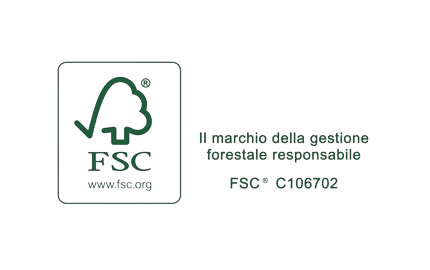FSC – Forest Stewardship Council
What is FSC? FSC certification is an international, independent, third-party certification specifically for the forest sector and wood and non-wood forest products. Responsible forest management means protecting the natural environment, bringing real benefits to people, local communities, workers and ensuring economic efficiency.FSC promotes environmentally sound, socially beneficial and economically sustainable forest management worldwide. Types of … Continued

What is FSC?
FSC certification is an international, independent, third-party certification specifically for the forest sector and wood and non-wood forest products.
Responsible forest management means protecting the natural environment, bringing real benefits to people, local communities, workers and ensuring economic efficiency.
FSC promotes environmentally sound, socially beneficial and economically sustainable forest management worldwide.
Types of certification and protocols
There are two types of FSC certification
1- Forest Management Certification (for forest owners and managers):
Ensures that a forest or forest plantation is managed in accordance with strict environmental, social and economic standards. These standards are based on the 10 Principles & Criteria (P&C) of responsible forest management.
FSC Forest Stewardship certification can be:
- Individual: a single forest or plantation is certified;
- Group: a single certificate refers to several forest properties simultaneously; Small and low intensity forests (SLIMF): certification standards designed specifically for small and low intensity forests;
2- Chain of Custody Certification – COC (for companies processing and/or trading forest products)
It guarantees the traceability of materials from FSC-certified forests and is indispensable to be able to apply FSC labels on products and sell them as certified. Thanks to this certification, an organisation can guarantee the market about the origin of the timber or paper used for its products and thus demonstrate its active contribution to responsible forest management in a correct, transparent and controlled manner.
FSC Chain of Custody certification can be
- Individual: of individual organisations;
- Group: covering several organisations, with the additional possibility of multi-site certificates;
- Of individual projects: applicable for example to the building and construction sector, for which there is an ad hoc standard.
How to obtain certification
After having identified the type of FSC certification of interest, it is possible to view the reference standards in order to identify requirements and obligations.The standards can be implemented independently or, alternatively, with the help of an FSC Consultant to support the company in the preparation phase. An FSC-accredited certification body must also be identified to which the application for certification is to be submitted. This body will conduct an audit at the forest or organisation to verify compliance with the standards. The successful outcome of this audit determines the possibility of obtaining FSC certification. Throughout the duration of the certificate (5 years), the certification body carries out annual surveillance audits to ensure that the company’s compliance with the standards is maintained over time.
Benefits for the company
- Economic benefits due to greater acceptance and preference for non-certified products by end users resulting in better market access. Increased attention from consumers, governments and public administrations on the origin of the products purchased, how they are made and their environmental impact;
- Social benefits for positive interactions between the Company and communities;
- Improvement of the relationship between the Company and its workers: staff training that improves working conditions and increases worker awareness of the importance of health and safety regulations;
- Environmental benefits aimed at protecting forestry systems and ecosystem services, which also have long-term repercussions on the entire processing and utilisation chain;
- Promotion and marketing of ecosystem services
- Presence of incentives for the use of FSC-certified building materials (e.g. use of the label is required by green building standards such as LEED)
- Compliance with current legislation: e.g. EU Regulation No. 995/2010 of the European Parliament and of the Council (EUTR regulation) of 20/10/2010 (in force since 03/03/2013) which establishes the obligations of companies dealing with wood and wood-based products (requires the same information as CoC certification).
The figure of the FSC accredited consultant
Being an accredited consultant makes it possible to support companies in all phases of preparation for obtaining FSC certification, through appropriate identification and implementation of the requirements and obligations of the reference standards.